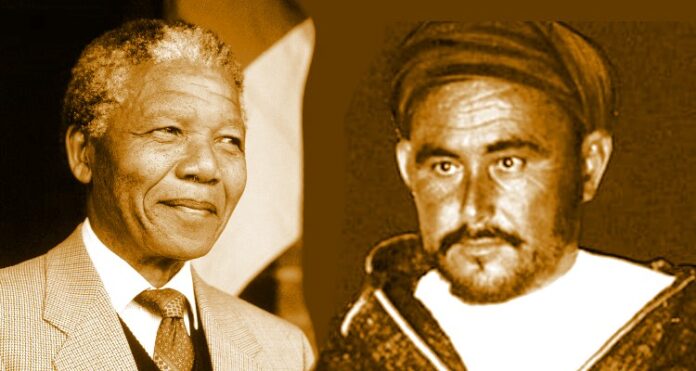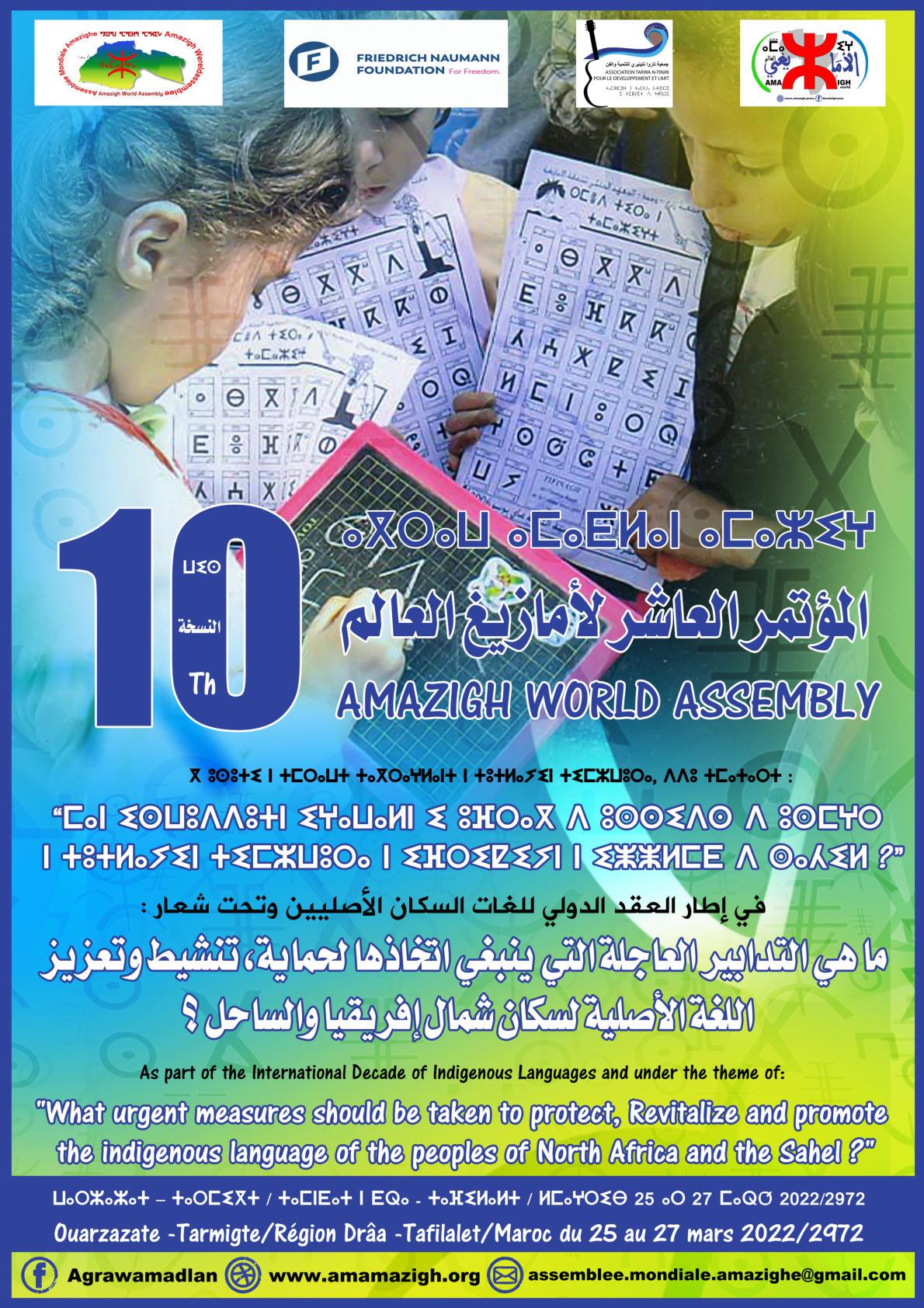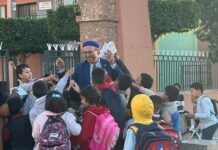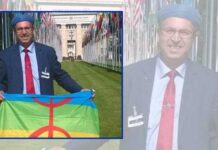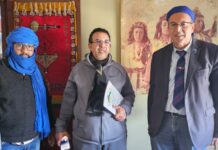Mr. Matamela Cyril Ramaphosa
President of the Republic of South Africa and President of the African National Congress (ANC)
Subject: What interest does South Africa have in interfering in the internal affairs of other African countries?
Mr. President,
The Algerian authorities, emerging from blatant irregularities in the last presidential elections, organized a so-called “Day of the Rif” in Algiers on November 23. According to the Algerian press, a deputy minister from your government reportedly participated in the event [1], openly supporting a new separatist movement in northern Morocco, created by these same authorities in 2023, following their support for the Polisario Front since 1976. In my previous correspondence dated October 28, I had already brought this matter to your attention [2].
Unfortunately, much like the Algerian generals, you seem to be deliberately interfering in Morocco’s internal affairs, thus violating the principle of “full and complete sovereignty of States” enshrined in Article 2, paragraph 7, of the United Nations Charter (June 26, 1945). This incomprehensible and hostile attitude undermines Morocco’s territorial integrity and contradicts the fundamental principles of the African Union Charter [3], adopted during the Fourth Extraordinary Session of the Assembly in Sirte (Libya) on September 9, 1999.
Article 3 of this Charter explicitly outlines its objectives:
- (a) Achieve greater unity and solidarity between African countries and peoples;
- (b) Defend the sovereignty, territorial integrity, and independence of its Member States;
- (f) Promote peace, security, and stability on the continent.
Supporting the deceitful manoeuvres of the Algerian generals aimed at destabilizing the Kingdom of Morocco goes against these ideals and the principles upheld by the African Union and its iconic Pan-African figures, such as your hero Nelson Mandela, for his fight against apartheid.
The so-called “Rif separatists,” fabricated by the Algerian generals, are now attempting to exploit the legacy of Mohamed Abdelkrim El-Khattabi, a historic Moroccan-African leader. Contrary to false claims, Abdelkrim El-Khattabi was never a separatist. Instead, he was a national and Pan-African hero.
Mohamed Abdelkrim El-Khattabi, in whose honor I had the privilege of organizing an international seminar in Granada in 1993 [4], led a war of independence against two major colonial powers, France and Spain (1921-1926). His guerrilla tactics inspired figures like Mao Zedong, Ho Chi Minh, and Che Guevara [5]. Forced to surrender due to the massive use of chemical weapons [6] by the colonizers, Abdelkrim nonetheless built a modern Rif Republic to unify the region’s tribes and lay the foundations for a liberated Morocco. His struggle was for the liberation of all of Morocco, as evidenced by his offensives against the French army in 1924-1925, which reached the gates of Fez.
Abdelkrim, who inspired liberation movements worldwide, including the Algerian nationalists led by Messali Hadj in 1927, aspired to free all of North Africa from colonial domination. King Mohammed VI even supported the organization of our international colloquium in 2004 in Al Hoceima, in partnership with the Abdelkrim El-Khattabi Foundation, to highlight his role in coordinating the liberation armies of Algeria, Morocco, and Tunisia during his Egyptian exile starting in 1947. One of the first Algerians to seek Abdelkrim’s expertise in anti-colonial struggle was a young Kabyle at the time named Hocine Aït Ahmed, a historic figure of the Algerian revolution [7].
Furthermore, the arms Abdelkrim sent to northern Morocco in 1954 for the Algerian National Liberation Front (FLN) and the Moroccan National Liberation Army (ALN) also benefited our hero Nelson Mandela, who trained at the “5th Regulares” barracks in Segangan, in my home province of Nador. The leader of the Moroccan ALN, Abbass Messaadi, was even assassinated on June 27, 1956, due to his unwavering support for the armed struggle for the independence of our Algerian brothers.
Renowned historians like María Rosa de Madariaga confirm that Abdelkrim had no separatist intentions. According to her, the use of the term “republic” was solely to pressure the Sultan into mobilizing the fight against occupation. This was proven when Abdelkrim systematically waged war against France in 1924 and 1925, defeating colonial strategies and defensive lines established by Marshal Hubert Lyautey. Far from being a separatist, his dream was of a unified and liberated North Africa.
We call on South Africa to adopt a position aligned with the aspirations of revolutionary figures like Abdelkrim El-Khattabi and Nelson Mandela, rather than aligning with the destructive agendas of the Algerian generals. These generals, while repressing their own people and indigenous Amazigh-African communities, act like modern colonial “Arabists,” akin to Turkish and French colonizers!
Instead of betting on separatism and division, we hope South Africa will encourage genuine unity among the peoples and states of North Africa. This vision is part of our ambitious project, the “Manifest of Tamazgha” [8], championed by our Amazigh-African populations.
Please accept, Mr. President, the assurances of my highest consideration.
Rachid Raha, President of the Amazigh World Assembly
Notes :
[2]- https://amamazigh.org/2024/10/are-south-africans-truly-africans/
[3]- https://au.int/sites/default/files/pages/34873-file-constitutive_act_french-1.pdf
[4]- https://rachidraha.com/PDF/AlJatabi.pdf
[5]- https://www.youtube.com/watch?v=6etYtGtD1rM
[7]- https://rachidraha.com/abdelkrim-et-la-revolution-cubaine/
[8]- https://amamazigh.org/wp-content/uploads/2018/10/AMA_MANIFESTE-DE-TAMAZGHA_5-langues.pdf


